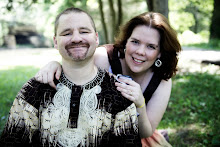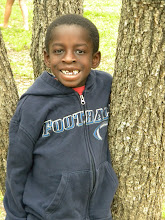"Ghana: Poor Helpless Mothers"
This is the article that first opened my eyes to the common practice in Ghana of not allowing mothers to leave the hospital until after their bill is paid. I wonder...are the babies allowed to leave?
Ghana: Poor Helpless Mothers
7 December 2007
DR Emmanuel Kwesi Coomson Cape Coast
Mary Samuel was rushed into the Accident and Emergency (A&E) unit in a very poor state having been referred from Abura Dunkwa Hospital as a case of prolonged labour with fetal distress. Mary had apparently been in labour for more than 24 hours with her third pregnancy. She was very distressed, dehydrated and pale. Further assessment showed that the uterus may have ruptured and was rapidly resuscitated. This deadly complication of labour was confirmed by a quick ultrasound scan.
Mary was quickly sent to the theatre for emergency laparotomy. When the abdomen was opened, it was found that the uterus was burst open with the baby floating freely in the abdomen in a pool of blood. Unfortunately, the baby was already dead.
The baby and the placenta were removed and the womb repaired. The operation went very well and so did her recovery. Mary was admitted on the 9th October, 2007 and discharged on the 16th October, 2007 but is currently still on the ward because she cannot pay her bills. In fact, she was brought to the hospital without a single Kobo and the Good Samaritan who brought her also disappeared. The social welfare unit is also finding it very difficult to contact her family, as she will not be allowed to leave without settling her bill.
Mary Samuel claims she is a Krobo who hails from Dodowa but lives at Kpando-Torkor with her husband and two children aged 8 and 3 years. The husband is a fisherman. They had been living in Togo until the death of Nyasemgbe Eyadema when they moved to Kpando-Torkor, volta Region, Ghana.
She delivered her last child by caesarean section three years ago in a hospital in Togo and claims she was not told the reasons for the operation nor was she advised to deliver in a hospital.
During the last pregnancy, which almost resulted in her death, she experienced recurrent severe abdominal pains with diarrhoea throughout the period. She however did not seek any medical attention. She rather traveled all the way from Kpando to Edumfa, a prayer camp in the Central region. She did so because 'it was cheaper to be there'.
At Edumfa, one registered with GH¢1 and picked up a mattress at GH¢1. One was given back his/her GH¢1 upon return of the mattress. The place is operated by a prophetess / healer who sometimes assist her poor clients with some food. Other patients in the camp or their relatives also assisted the poorer ones.
When Mary Samuel went into labour, she prayed hard that her delivery would not happen in a hospital. She therefore traveled to Edumfa to have her baby under the prayerful guidance of her prophetess and healer. She was given GH¢25 by the husband with a promise he will follow up any moment he got some more money from his friends.
On the way to Edumfa, the abdominal pains became very severe and unbearable. Her misery was compounded when the taxi she hired got to the prayer camp. Her prophetess assessed her and rightly decided that she needed to see a doctor at the hospital. I believe the prophetess knew she was not going to make it and she did not want any death in her camp. Mary was very disappointed in her prophetess for obvious reasons.
She hired another taxi which took her to the Abura Dunkwa Hospital. By this time, 'I thought I was going to die because my heart was pounding hard and I felt dizzy and confused'. 'I could feel the baby moving all over my abdomen. I kept crying and shouting in pain. I guess I passed out but when is came to, I was in a taxi on the way to the Central Regional hospital.'
Relevant Links
Mary Samuel has been on the ward for 2 months now and has not been visited by any relative, not even the husband. Her bill now stands at GH¢300
There are 14 more mothers who have been discharged but cannot go home because on non-payment of bills. Most of them had delivered either spontaneously or by caesarean section. Their debts range from GH¢60 to GH¢300; all adding up to about GH¢3,300. Because of the high turn over rates of all obsteric and gynaecology wards, hospitals cannot afford to give 14 bed away or see GH¢ 3,300 go down the drain. These women and their babies are kept in two isolation wards with two beds. The rest sleep on the floor.
Most of these women regret not having registered with the NHIS and promise to do so as soon as possible. They are appealing to the general public, political leaders, churches, companies and NGOs to come to their aid. They are our mothers, sisters, wives and daughters who need our help. Please, do not look the other way. I am also appealing on their behalf that you help them get out and celebrate this Christmas with their families.










4 comments:
That is just so heartbreaking, Anita. We'll be in prayer for all mothers, and for you to know your calling in this situation!
Blessings!
Heather
Wow, how terribly sad... and I'll be praying with Heather.
Amy F.
Anita, what is GH¢ 3,300 in U.S. dollars?
GH 3,300 cedis is equivilent (more or less) to about $3500US.
Post a Comment